Bachelor of Science in Accounting
-
Total # of Credit hours120
Welcome Message

It is a great pleasure to welcome you all to the Department of Accounting at the College of Business Administration, AU.
Accounting is the heart of any private or public organization. The accounting degree creates many opportunities. The different careers range from highly technical roles to executive positions where you have a strong say in business decision making. Accountants work with individuals, small businesses, large corporations, non-profits and government agencies to prepare and organize, and analyze financial reports, tax documents, costing systems, budgeting, and auditing.
Completing our Bachelor of Science in Accounting (BSCA), our graduates become eligible for future professional and academic careers as well as positions at many public and business organizations such as: Public accounting and auditing firms, financial institutions, business and industrial corporations, governmental and not-for-profit organizations, sole proprietorships, and partnerships and corporations.
Accounting is one area of the job market that does not show any signs of slowing down. In fact, the job opportunities for fresh accounting graduates are growing daily. Our accounting degree equips you with deep understanding, technical and analytical skills that help you to practice accounting and grow at the academic and professional levels. Our program gains recognition and accreditation from the top professional bodies in the world (ACCA- in UK, CPA-Australia, and Global CIMA– USA).
Dr. Ibrahim Elsiddig Ahmed
Program Coordinator
Program Overview
Accounting, described as “The Language of Business”, is the study of the concepts and techniques used in reporting on matters related to an entity’s financial status and performance. Entities compete in both input and product markets that is why accounting information is essential for managers to plan and control business activities. Information generated through the accounting process helps in communication and analysis of financial reports that are required for business decision-making.
Mission
Provides rigorous accounting education and professional practice based on different skills, values, and competencies to enhance employability.
Program Goals
-
Provide students with adequate accounting knowledge that qualifies them for employment in accounting practice and the profession
-
Enable students to prepare, analyze and communicate accounting information using information technology to facilitate the decision-making process
-
Develop skills of ethical reasoning, critical thinking and problem-solving
-
Prepare students to conduct research in accounting and related areas
Admission Requirements
The admission requirements for the Bachelor of Science in Accounting are:
High School Requirements:
- 60% of UAE Secondary School Certificate (Grade 12) for all tracks (Elite , Advanced, and General), or its equivalent.
English Requirements:
- A minimum score of 80% in the English subject, or its equivalent in other curriculums.
(Click here to find out more about the undergraduate admission process and requirements)
Graduation Requirements
Students will be awarded the Bachelor of Science in Accounting degree upon fulfilment of the following requirements:
- Successful completion of 120 credit hours,which normally takes eight semesters.
- 16 weeks of industrial internship (after the completion of 90 credit hours including seven Accounting core courses), which is equivalent to three credit hours.
- A minimum Cumulative Grade Point Average of 2.0.
Accreditations
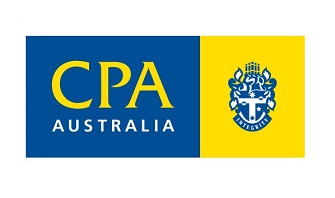 |
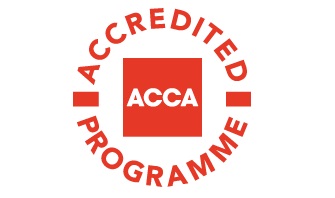 |
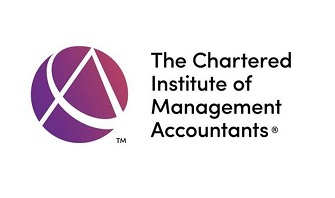 |
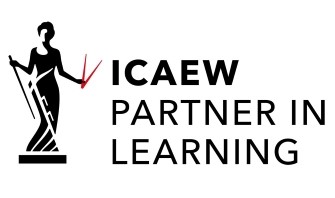 |
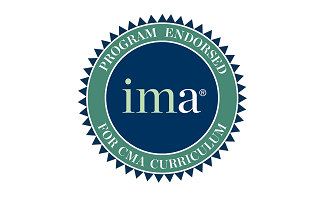 |
Program Learning Outcomes
-
Perform the steps of the accounting cycle, including preparing financial statements in accordance with international standards.
-
Acquire substantive accounting knowledge, and/or demonstrate competencies required by employers to ethically practice auditing and accounting in different functional areas.
-
Develop cost and managerial accounting information and use it to make decisions for internal company purposes and problem solving.
-
Prepare and communicate financial information for profit and not for profit organizations.
-
Apply and critically analyze accounting models to solve accounting problems through case analysis and writing research reports.
-
Utilize information technology in making business decisions.
Program Structure and Credit Hours
The B.Sc. degree in Accounting requires the completion of either 120 or 126 credit hours, depending on the applicable study plan, as per the following structures:
Structure of study plan 2016 (Student ID 2016-2020)
Type of Courses |
Credit/hour |
|---|---|
1. University General Education Requirements |
24 |
| (a) University Compulsory Courses | 15 |
| (b) University Elective Courses | 9 |
2. College Requirements |
66 |
| (a) College Compulsory Courses | 54 |
| (b) College Elective Courses | 12 |
3. Major Requirements |
36 |
| (a) Major Compulsory Courses | 33 |
| (b) Major Elective Courses | 3 |
Total Credit Hours |
126 |
Structure of study plan 2021 (Student ID from 2021)
Type of Courses |
Credit/hour |
|---|---|
1. University General Education Requirements |
30 |
| (a) University Compulsory Courses | 15 |
| (b) University Elective Courses | 15 |
2. College Requirements |
60 |
| (a) College Compulsory Courses | 51 |
| (b) College Elective Courses | 9 |
3. Major Requirements |
36 |
| (a) Major Compulsory Courses | 30 |
| (b) Major Elective Courses | 6 |
Total Credit Hours |
126 |
Structure of study plan 2025 (Student ID from 2025)
Type of Courses |
Credit/hour |
|---|---|
1. University General Education Requirements |
24 |
| (a) University Compulsory Courses | 18 |
| (b) University Elective Courses | 6 |
2. College Requirements |
60 |
| (a) College Compulsory Courses | 54 |
| (b) College Elective Courses | 6 |
3. Major Requirements |
36 |
| (a) Major Compulsory Courses | 30 |
| (b) Major Elective Courses | 6 |
Total Credit Hours |
120 |
Courses Descriptions
ACC 205 Principles of Accounting
Accounting is something that affects people in their personal lives just as much as it affects very large businesses. Financial accounting is concerned with the provision of accounting information to owners, investors and other external users. The term accounting may refer to different activities, for example collecting, recording, processing and communicating economic data to produce useful accounting information. This course is a study of the fundamental principles and procedures of accounting as applied to sole proprietorships, partnerships and corporations.
ACC 210 Introduction to Managerial Accounting
Managerial Accounting focuses on: the development, interpretation, and application of accounting information for managerial decision making. The course stresses the use of financial information within organizations for the purposes of understanding and analyzing activities and operations. Students learn the linkages between accounting information and management planning through cost classification, cost analysis, cost-volume-profit analysis, operational budget, and analysis of financial statements for decision-making.
Pre-requisite: ACC205
BUS 209 Business English
The objective of this ESP course is to empower and develop students’ business English skills. It also aims to develop their communicative competence in the four English skills, listening, speaking, reading and writing with more emphasis on the latter as a communication component in a business environment. This course is what the students need in order to progress effectively in their academic life which leads them to a successful career life later.
This course is designed to theoretically provide the students with the necessary language they need to succeed in business settings with a lot of authentic input from leading business organizations. It also gives business students the opportunity to practice business English terminology through being exposed to case studies on a wide range of companies, organizations and industry sectors.
In addition, students will develop their basic writing skills. They will go through the topics they will need to succeed in business such as meeting minutes and all parts of report writing. They will experience a progressive syllabus on the process of writing: planning, note-taking, drafting and checking through portfolios. Furthermore, Reading and listening introduce topics and ideas about business which will develop students’ linguistic competence. Hence, integration of language skills helps to foster understanding of concepts.
BUS 212 Data Analysis for Business
This course covers the foundations for statistical reasoning and statistical applications in a business environment. It focuses on the application of business analysis tools relevant to managerial decision-making. Examples and case studies are drawn from finance, marketing, and management to aid understanding of the statistical techniques and assist in their implementation. Topics include data analysis, probability distributions, sampling distributions, estimation, hypothesis testing, and regression analysis. Extensive use of Excel with MegaStat is made for representing and analyzing all forms of data.
Pre-requisite: STA 113
BUS214 Business Research Methods
This course provides an introduction to research methods in social sciences in general and business administration in particular. The primary aim of the course is to equip students with the essential research techniques they would use in advanced specialized courses such as marketing research, feasibility studies and project planning, and the graduation project. The course will cover a range of topics including, in particular, research designs, sampling theory, data collection tools, questionnaire development and program evaluation methodology. The course will also cover basic data analysis methods involving both exploratory and hypothesis testing statistical techniques.
Pre-requisites: BUS212
BUS 300 Management Information Systems
This course provides an overview of computers and information processing. It covers the following topics in detail: management information system concepts, information processing applications, data handling process, data processing and automation, fundamentals of any system and system design, and development and implementation.
Pre-requisites: MGT 200
BUS311 Business Communications
The course aims to equip students with effective business communication skills, providing thorough practice in writing business letters, memos, reports, resumes and job applications. In addition to developing written communication, the course teaches verbal communication skills, for example public speaking, interviewing and other forms of communication. The entire teaching process is focused on building effective communication skills.
Pre-requisite: BUS209, ENG104
BUS 315 Business Analytics
This course aims to review and learn basic quantitative methods used in business decision-making. The major focus of the course will be on the formulation of models that can be used to analyze complex problems taken from various functional areas of management, including finance, marketing, operations, and human resources. Some of the specific topics to be covered will include linear programming, queuing theory, decision analysis, forecasting and simulation.
Pre-requisite: BUS 212
BUS 316 Legal Environment & Ethics
The aim of this course is to review basic legal principles and sources of contract law, background of law and legal theory. The following topics are covered in detail: formation of contracts, modifications, terminations, remedies, award law, pricing, patent, business organizations, company law, sales of goods, transfer of ownership rights, employment and health and safety laws.
Pre-requisite: MGT 200
BUS 470 Business Internship
After the completion of 90 credit hours, including seven major core courses. The aim of supervised training is to enable students to practice the learnt theories and concepts in a business organization. Students from any business discipline undergo a 16-week training period that is closely monitored by an instructor and the manager/supervisor of the organization to ensure that the student cultivates sound professional attitudes and ethics needed in workplaces.
Pre-requisite: Year 4
ECO 200 Microeconomics
This course is designed to introduce basic economic concepts related to individual decision-makers in the economy - households, businesses and governments - and how they interact. Meaning, nature and methods of economic study are introduced. Supply, demand and elasticity are used to analyze consumer and firm behaviors in different types of markets. The rationale for various public policies designed to modify the workings of markets is examined.
ECO 210 Macroeconomics
This course is designed to introduce basic economic concepts related to aggregate economic relationships such as output and income, national income accounting, aggregate supply and aggregate demand, unemployment, inflation, economic growth and development, money and banking, and the international economy. The course emphasizes the main components of aggregate expenditure and determination of equilibrium level of income, in addition to the analysis of the effects of fiscal and monetary policies on the economy. It extends understanding of the ability of governments to influence economic performance.
Pre-requisite: ECO 200
FIN 210 Fundamentals of Finance
This introductory course discusses in detail basic terms commonly used in finance. Topics covered include functions of financial management, financial analysis and planning, working capital management, the capital budgeting process and long-term financing.
Pre-requisite: ACC 205
INT300 Database Management Systems
This course is designed to give a theoretical and practical background in database techniques. It covers database concepts, data models, data dictionary, entity relationship diagrams, and the relational data model, converting E-R models to relational model, SQL language, normalization, and physical database design. Oracle software is used in the Lab.
MGT 200 Introduction to Management
This introductory course provides an overview of the field of management. The topics covered are designed around the key functions of management: planning, organizing, leading, and controlling. Students are exposed to the development of management theories and approaches, managerial decision-making, business environment, business ethics and social responsibility.
MGT 300 Organizational Behavior
This course surveys the background and development of organizational behavior, and examines major conceptual models in the field. A number of topics are explored in detail, including personality, perception, motivation, groups and teams, communication, leadership, conflict and negotiation, and organizational sources of stress and coping strategies. Issues relating to organizational change and development are given special attention.
Pre-requisite: MGT 200
MKT 200 Principles of Marketing
This introductory course sheds light on the basic concepts of marketing, its varied definitions, origins and evolution through time. It also covers the main components of the marketing program (product, price, place and promotion) on which any attempts to plan marketing efforts rest.
Pre-requisite: ECO 200
BUS 222 Introduction to Islamic Business
This course introduces the Islamic perspective on modern business settings. It will help to develop an understanding of the application of Islamic principles of trade and commerce in modern institutional settings. It is a specially designed business course to give students an understanding of the fundamental norms of Islamic Shari’ah in doing business covering Halal and Haram activities. In addition, the course covers the introduction and overview of the modern Halal industry spanning from food, dresses, and medicines to Islamic financial services. Finally, students will be introduced to the Islamic perspectives on specialized business areas including management, marketing, etc. The outcome of the course is an understanding of the Shari’ah-compliant businesses opportunities.
BUS 418 Business Feasibility and Planning
Feasibility studies and project evaluation have become increasingly important, since they signal the success of any industrial, tourism or investment project. This course is designed to introduce students to the concepts and process of feasibility studies and project evaluation. It explains how to prepare feasibility studies and project evaluation, and how to benefit from them in the investment decision-making process. Feasibility studies and project evaluation depend on collecting and analyzing marketing, technical, administrative and financial data and information.
Pre-requisites: 90 credits
ECO 311 Managerial Economics
This course is designed to acquaint students of business administration with the economics of managerial decision-making, paying special attention to the criteria for rational decision making in private business, non-profit institutions and public agencies. The course emphasizes the application of economic theory and the tools of decision science to examine how an organization can achieve its objectives most efficiently. It is an application of economic theory and analysis to the managerial decision-making process.
Pre-requisites: ECO 200
ECO 320 Economic Development of GCC
This course is designed to introduce the concepts, measurements and theories of broad-based sustainable development, as well as the relationships between economic development, human development and the environment. Students will also become familiar with several theories of development, and the characteristics and the quality of life in GCC countries will be investigated and compared to those of other countries. The focus would be on the causes, problems and challenges associated with the development of GCC countries, such as population structure and localization policies, the feasibility of GCC states integration and the impact of oil and non-oil production on development.
Pre-requisite: ECO 210
INT103 IT in Business
The major role of information technology (IT) is to support organizational personnel, regardless of their functional area or level in the organization. The aim of this course is to provide students with a solid grounding in business uses of information technology in a rapidly changing environment and to provide a discussion of critical issues surrounding the use of IT in organizations. This course covers a range of general information technology topics that will make the student appreciate the role of IT in Business. Topics include information technology fundamentals; information technologies; computer networks; business applications; development processes; and ethical, societal, and security issues.
MKT 328 Public Relations
The course represents a survey of the fundamental principles, tools and practices of the public relations profession in addition to the issues involved in designing and evaluating public relations programs to solve specific internal and external communication problems.
Pre-requisites: MKT 200
MKT 413 Hospitality and Tourism
This course exposes students to the theoretical and practical world of hospitality and tourism marketing. Students who intend to learn more about hospitality and tourism marketing, not only in the UAE context but also globally, will greatly benefit from this course. Students will also learn how hospitality and tourism marketing can be better managed in the growing digital context. A few key topics that will be covered are how to understand today’s consumer behaviour, digital marketing, pricing, distribution channels, promotional strategies, customer service, marketing research and marketing ethics.
Pre-requisites: MKT 200
MKT 423 Social Media
This course takes an in-depth look at social networks, social media platforms and online advertising to offer students an advantage in many positions involving marketing, consulting and brand management both on the buyer and seller side of social media. Students with an interest in entrepreneurship will also find the course useful as new businesses often rely on social media marketing.
From a marketing perspective, consumers now have louder voices than they used to, they are more socially connected than they ever have been, they expect more from brands, and information reaches them faster than ever before. In light of these fundamental changes, the overarching goal of this course is to help you get a clear perspective on what's really going on in marketing in the age of social/digital/mobile so that you can start to see where the true value - to consumers, to marketers, and to other corporate stakeholders.
Pre-requisites: MKT 200
ACC 310 Intermediate Accounting I
This accounting course focuses on the process of providing financial information for business decisions. The evolution in a nature of doing business affects the comparability of financial statements among the users. A single set of accounting standards, International Financial Reporting Standard (IFRS) is currently being globally applied. The MNCs gain tremendous benefits from the introduction of IFRS. This course concentrates on the application of IFRS in various transactions such as in the preparation, valuation, and presentation of the contents of the statement of financial position. The course applies IFRS to prepare the income statement and the statement of cash flows.
Pre-requisite: ACC 205
ACC 311 Computerized Accounting Information Systems
The computerized accounting information system combines the skill sets of two areas experiencing rapid growth and change - accounting and information technology. Electronic commerce, direct-business-to-business communication, paperless work processes and many other technology-intensive innovations have created new challenges and opportunities for accountants who also have expertise in information systems. Many traditional accounting functions are now embodied in systems that require a different combination of technical and financial knowledge. The CAIS course is designed to provide the combination of knowledge and skill sets to meet the new challenges and opportunities of the information technology world.
Pre-requisites: ACC 205
ACC 320 Intermediate Accounting II
This course is an extension of Intermediate Accounting I. It primarily aims to provide detailed coverage of issues associated with recognition, measurement and disclosure practice. Special accounting issues such as income taxes, pension and post-retirement benefits as well as leases form considerable segment of this course. Moreover, this course also specifically covers the whole spectrum of accounting for partnership, i.e., formation, operation and liquidation.
Pre-requisite: ACC 310
ACC 321 Cost Accounting
Cost Accountants have important roles in decision making processes that typically involve technical issues involving cost analysis, cost control and planning. Cost accounting provides useful information that will lead to the best decision on production and performance evaluation. This course offers an intermediate level of cost accounting concepts and techniques, calculation of manufacturing costs and overhead allocations methods. Special emphasis on marginal and absorption costing while the final part covers variance analysis.
Pre-requisite: ACC 210
ACC 330 Advanced Managerial Accounting
Management Accounting is an essential tool that enhances a manager’s ability to make effective decisions through various internal financial information. Management accountants are involved directly in the process of analyzing, planning and forecasting internal financial information for production decisions. This course exposes the student to the use of cost information. It also covers analysis for decision making such as pricing decisions, transfer pricing, and employee profitability. Furthermore, various management control systems including the concept of responsibility accounting, decentralization, performance evaluation and contemporary management accounting techniques are given special weight in this course.
Pre-requisite: ACC 220, ACC 321
ACC 408 Auditing
Auditing is a vital part of accounting. The goal of an audit is to express an opinion on the financial statements prepared by business organizations, particularly public companies based on evaluation of evidence collected on a test basis. Financial audits are performed to ascertain the validity and reliability of accounting information, as well as to provide an assessment of the effectiveness of internal control systems. This course is designed to expose students to the nature, types and services offered by the accounting firms. Emphasis is placed on internal control and steps in completing an audit. Additional emphasis is placed on techniques and tools from audit reports, professional ethics, legal liability, responsibility, evidence, materiality, and audit sampling.
Pre-requisite: ACC 330, ACC 311
ACC 410 Advanced Accounting
Consolidation or amalgamation is the act of merging many entities into one. In business, it often refers to the mergers and acquisitions of many smaller companies into much larger ones. In the context of financial accounting, consolidation refers to the aggregation of financial statements of a group of companies as consolidated financial statements. The transfer of control from one group of owners to another affects the economic interests of many stakeholders, including the shareholders, managers, creditors, and customers. Although sole proprietorship is the most common form of business in the Arab world, the corporate form of organization accounts for by far the largest volume of business in the region. The study of the nature of business combination and preparation of consolidated financial statements is the primary concentration of this course. Inter-company transactions such as sales of inventory, assets and bonds complement the consolidated financial statements covered in this course. In addition, another form of inter-company transaction such as branch accounting and joint venture form the final part of this course.
Pre-requisite: ACC 320
ACC 412 Taxation Accounting
Taxes are imposed on net income of individuals and corporations by the federal, most state, and some local governments. Citizens and residents are taxed on worldwide income and allowed a credit for foreign taxes. Income subject to tax is determined under tax accounting rules, not financial accounting principles, and includes almost all income from whatever source. Most business expenses reduce taxable income, though limits apply to a few expenses. Individuals are permitted to reduce taxable income by personal allowances and certain non-business expenses. This course covers an overview of income tax concept and sources of taxable income. The primary concern of this course is on the calculation of individual tax liability including business income. The second part of this course covers tax implications on property transactions and followed by tax compliance and tax planning.
Pre-requisite: ACC 310
ACC 422 Graduation Project
This course takes the form of a dissertation completed by graduating students in partial fulfillment of BSc in Management, Accounting, Marketing and Finance degree programs. Students choose an appropriate research project, justify it, work out the research methodology, and analyze, synthesize and evaluate information, then communicate significant knowledge and understanding. The proposed research should be related to the program. An academic advisor is assigned to advise the student at various stages of the research project. This course culminates in the preparation of a dissertation by each student. The course is an integral part of the curriculum, designed to train students to undertake scientific research and bridge the gap between theory and practice in management, accounting, marketing or finance.
Pre-requisite: 102 credit hours, BUS 214
ACC 425 Financial Reporting and Analysis
The course reviews and extends some of the financial accounting topics such as accounting and financial analyses. It utilizes a framework for financial statement analysis consisting of forecasting and valuation analysis. This course explores the optimal management of the firm’s assets and financing requirements, analysis of financial statements, financial markets, risk, valuation, long term and short-term financing and investment. The student recognizes that the economic success of companies requires on top of excellent research and development of a comprehensive understanding of financial processes. It focuses on assets and liabilities structure, with the overall goal of maximizing the value of the firm. The primary purpose is to introduce students to the different areas of financial decision-making and financial control by using theoretical concepts and applying these to real world situations.
Pre-requisites: ACC 320, ACC 330
ACC 312 Governmental Accounting
The aim of this course is to equip the students with the theory and practice of fund accounting in government units and not-for-profit organizations. In the process, the course discusses all issues related to the preparation of financial statements of the government units and non-profit organizations.
Pre-requisite: ACC 205
ACC 413 Oil and Gas Accounting
Since the early 1970s, oil revenues have transformed the Arabian Gulf region into a modern sophisticated industrialized economy. Crude oil exports, which are the preserve of the Arabian Gulf region, remain the mainstay of economic activity. Oil and gas accounting is concerned with the models and concepts that together form the foundation and practice of financial and cost accounting for oil and gas industry.
Pre-requisite: ACC 320
ACC 414 International Accounting
The global economy is best characterized by a new economic and corporate world in which national boundaries are losing their importance. Multinational and local firms need to be aware of the linkages, ramifications, conditions and demands of the global economy. This course looks at how accounting information that reflects this international reality can be produced for both external and internal users. International accounting takes in all the technical accounting problems in financial accounting, cost accounting, management accounting and auditing that have a bearing on the conduct of foreign operations.
Pre-requisite: ACC 320
ACC 415 Forensic Accounting and Control
This course describes the advanced theoretical and practical aspects of forensic accounting, fraud investigation and legal practices. It is designed with topics to prepare students for the responsibilities and challenges faced as an auditor / forensic accountant in charge of fraud examination. The course assumes an underlying knowledge covered in Auditing and Financial Accounting courses. The topics include discussions on relevant terminologies of forensic, tool and techniques in forensic accounting practices. The course rely heavily on discussion of cases on accounting scandals around the globe. The second part of the course focus specifically on fraud and financial statement misrepresentations.
Pre-requisite: ACC 320
ACC 420 Accounting Theory
Accounting theory refers to the study of assumptions, methodologies and frameworks used in the study and application of accounting principles. It requires a review of both the historical foundations of accounting practices, as well as the way in which accounting practices are verified and added to the regulatory framework that governs financial reporting. Organizations such as the International Accounting Standards Board (IASB) help create practical applications of accounting theory, and professionals such as the ‘Big Four’ facilitate companies navigate the accounting standards. The course traces historical developments of accounting, research approaches in the development of accounting theory, international accounting practices and conceptual frameworks. The standards setting process, the convergence initiatives, implication of accounting information on capital markets and arguments towards accounting regulations reflect the main coverage of this course. Meanwhile, the theoretical support on income concepts and preparation of income statement and statement of financial position supplements the course structure. The course is concluded by a special emphasis on Islamic Accounting as alternative approach of accounting.
Pre-requisite: ACC 320
ACC 424 Islamic Accounting
Recently, there have been moves toward the Islamization of most, if not all, aspects of life in many countries in the Arab region and the world at large. Islam possesses its own paradigm of economic relations within the context of an entire economic system based on injunctions and norms derived from the holy Quran and Sunna, called the Sharia's doctrine which constitutes the divine of Islam. Over the past decade, growth in Islamic financial institutions has outstripped that of conventional Arab banking. As far as the Gulf is concerned, there has been a series of move towards the Islamization of financial dealings. The conceptual framework of accounting, accounting policy, operationalization of terms, financial reporting standardization of accounting practice and profit and loss sharing in Islam are subject to debates among the academia and practitioners levels. This course provides a broad framework of the structure of Islamic accounting thought.
Pre-requisite: ACC 205